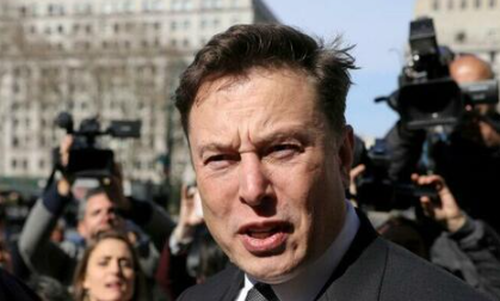
A Delaware judge voided Elon Musk's $55 billion pay package after a Tesla shareholder brought a case to court claiming it was excessive. The consequences of the ruling could have major implications for Tesla's governance structure, but their implementation will hinge on a forthcoming appeal, according to Bloomberg.
The compensation case, which was launched by shareholder Richard Tornetta, argued that Tesla's board lacked independence in crafting Musk's pay, a view the judge supported.
Tuesday's court verdict requires Tesla's board to put together a new executive compensation plan, at least temporarily overhauling the record-setting package previously awarded to Musk in 2018.
A large portion of Musk's net worth hangs in the balance, with the options valued at about $51.1 billion, according to the report. Excluding these options, his net worth would diminish to $154.3 billion, positioning him as the world's third wealthiest individual, a step down from his prolonged stint at the top, per the Bloomberg Billionaires Index.
Delaware Chancery Court Chief Judge Kathaleen St. J. McCormick cited inadequate disclosures and board conflicts of interest in her ruling. Musk, whose wealth largely comes from Tesla, the top auto company globally, has seen stock options from this plan vest as performance goals were met, though he hasn't exercised them yet.
The judge wrote: “In the final analysis, Musk launched a self-driving process, recalibrating the speed and direction along the way as he saw fit. The process arrived at an unfair price. And through this litigation, the plaintiff requests a recall.”
“The most striking omission from the process is the absence of any evidence of adversarial negotiations between the Board and Musk concerning the size of the grant,” she continued.
Musk's defense couldn't justify the necessity of this unprecedented compensation plan. The judge questioned the need for such a plan to retain Musk and achieve Tesla's objectives. The outcome of Musk's appeal or Tesla's response with a new pay package is yet to be seen, and any compensation from the case will revert to Tesla, not the shareholder.
"Never incorporate your company in the state of Delaware," Musk fired back on Twitter.
Never incorporate your company in the state of Delaware
— Elon Musk (@elonmusk) January 30, 2024
He followed this up with a poll on X asking (rhetorically) if Tesla should switch its state of incorporation to Texas.
Should Tesla change its state of incorporation to Texas, home of its physical headquarters?
— Elon Musk (@elonmusk) January 31, 2024
A Delaware judge voided Elon Musk’s $55 billion pay package after a Tesla shareholder brought a case to court claiming it was excessive. The consequences of the ruling could have major implications for Tesla’s governance structure, but their implementation will hinge on a forthcoming appeal, according to Bloomberg.
The compensation case, which was launched by shareholder Richard Tornetta, argued that Tesla’s board lacked independence in crafting Musk’s pay, a view the judge supported.
Tuesday’s court verdict requires Tesla’s board to put together a new executive compensation plan, at least temporarily overhauling the record-setting package previously awarded to Musk in 2018.
A large portion of Musk’s net worth hangs in the balance, with the options valued at about $51.1 billion, according to the report. Excluding these options, his net worth would diminish to $154.3 billion, positioning him as the world’s third wealthiest individual, a step down from his prolonged stint at the top, per the Bloomberg Billionaires Index.
Delaware Chancery Court Chief Judge Kathaleen St. J. McCormick cited inadequate disclosures and board conflicts of interest in her ruling. Musk, whose wealth largely comes from Tesla, the top auto company globally, has seen stock options from this plan vest as performance goals were met, though he hasn’t exercised them yet.
The judge wrote: “In the final analysis, Musk launched a self-driving process, recalibrating the speed and direction along the way as he saw fit. The process arrived at an unfair price. And through this litigation, the plaintiff requests a recall.”
“The most striking omission from the process is the absence of any evidence of adversarial negotiations between the Board and Musk concerning the size of the grant,” she continued.
Musk’s defense couldn’t justify the necessity of this unprecedented compensation plan. The judge questioned the need for such a plan to retain Musk and achieve Tesla’s objectives. The outcome of Musk’s appeal or Tesla’s response with a new pay package is yet to be seen, and any compensation from the case will revert to Tesla, not the shareholder.
“Never incorporate your company in the state of Delaware,” Musk fired back on Twitter.
Never incorporate your company in the state of Delaware
— Elon Musk (@elonmusk) January 30, 2024
He followed this up with a poll on X asking (rhetorically) if Tesla should switch its state of incorporation to Texas.
Should Tesla change its state of incorporation to Texas, home of its physical headquarters?
— Elon Musk (@elonmusk) January 31, 2024
Loading…





